This section is for paid subscribers only. Our subscription is only $3700/- for one full year.
You get unlimited access to all paid section and features on the website with this subscription.
Subscribe to read full article
This section is for paid subscribers only. Our subscription is only $37/- for one full year.
You get unlimited access to all paid section and features on the website with this subscription.
Not ready for a full subscription?
You can access this article for $2, and have it saved to your account for one year.
- Release Date1950
- GenreDrama
- FormatB-W
- LanguageHindi
- Run Time122 mins
- Length3351.28 metres
- Gauge35 mm
- Censor RatingU
- Censor Certificate Number48488
- Certificate Date18/07/1950
- Shooting LocationShrikant Studios Ltd, Chembur
Unlike the Bijli from the cloudlands tearing itself adrift from the ethereal vapours in the heavens and annihilating everything upom earth it touches, the Bijli in our story comes with a bang like a hunted deer into the midst of music and laughter, and , instead of destroying transforms everything she comes up against with the magic of love and happiness.
Pandit Deenanath, a celebrated exponent of classical music, is a devout celibate who holds that creative contribution in music, as in any art, can only come of austerity. Himself an uncompromising believer in single blessedness, he imposes his views on his disciples of both sexes with almost inhuman rigidity, forgetful of the fact that even his admirable band of pupils were after all weak mortals and not angels! Among his many pupils are Mohan, Tara and Paro whom he looks upon as his own son and daughters.
Pandit Deenanth's youthful dsiciples, living in the midst of music and dance and song, found it difficult to believe that life was meant to be wasted in asuterity. They inwardly revolted against the precepts of their Guru and let themselves go along the irresistible torren of love, kindled in this school of music by the interplay of songs and youth.
Everything goes on jolly well for a time, but Bijli drops in the midst of the school as if from the blues and Pandit Deenanath's school collapses like a house of cards. This Bijli, an oprhan girl, held in bondage by the beastly Shera, who exploited her golden voice and nimble feet, rushes like fate into the Ashram and cupid's archery comes into play!
Mohan sets eye on Bijli and is at once smitten by love. Tara finds her mare in Satish; and Paro in poet Bhola Nath, the gay idler, who has waited all these years for his rich ailing aunt to depart, bequeathing him a fortune.
Raju, a day scholar at the Ashram, is an unredeemed villain, trying to hook in by turn each of three girls, Bijli, Tara and Paro. Himself a man of noble instincts Guruji never suspects Raju's villainy.
Guruji, at Raju's constant backbiting, feels convinced that Mohan is responsible, not only for the elopement of Tara and Paro, but is himslef seeking an opportunity of eloping with Bijli. He hastily comes to the conclusion that it is Bijli who threatens to ruin his institution so dear to his heart, and he loses in no time in turning out the girl from the Ashram in spite of his wise and understanding sister Champa's remonstances-- Champa, who had made great personal sacrifices for her only brother.
Mohan who happens to be away, when Bijli is turned out dmeands of Guruji an explanation. Guruji flares up still more at Mohan's conductm and Mohan immediately quits the Ashram in search of his beloved Bijli. Guruji cannot afford to lose Mohan-- that would mean complete ruination of his life and instituiton. He himself goes out in search and ultimately succeeds in bringing him back to the Ashram.
Is it the end of the story? What has happened to Tara and Paro? Where does Bijli go? Does Mohan ever succeed in getting Bijli? All these are intimate details of the story which you can only best see on the Silver-Screen.
(From the official press booklet)

Cast
Crew
-
BannerHindustan Chitra, Bombay
-
Director
-
Producer
-
Music Director
-
Lyricist
-
Dialogues
-
Cinematography
-
Editing
-
Sound Recording/ Audiography
-
Choreography
-
Make-up
-
Laboratory/ Processed atBombay Film Labs P. Ltd.
-
Music CompanyH M V.
-
StillsStudio Shangrila
-
Writer
-
Song Recording



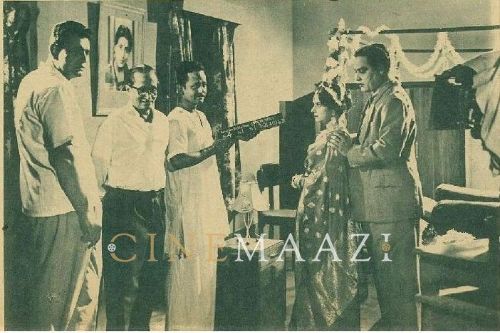
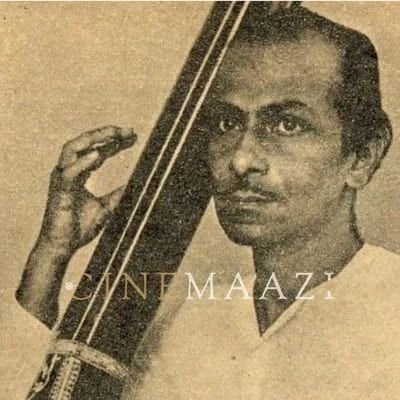

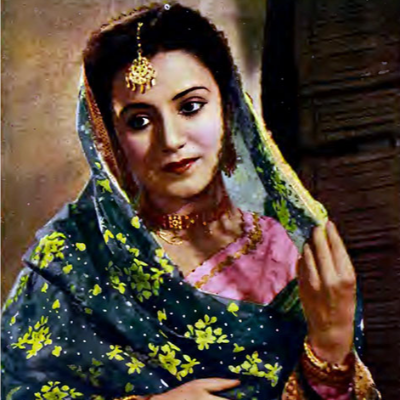
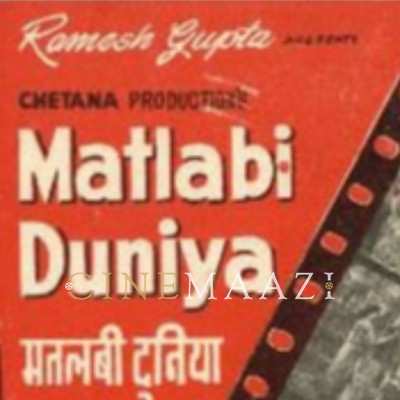
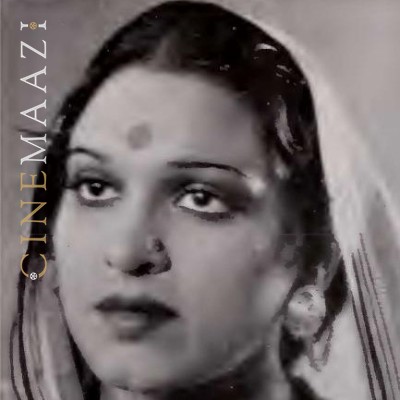
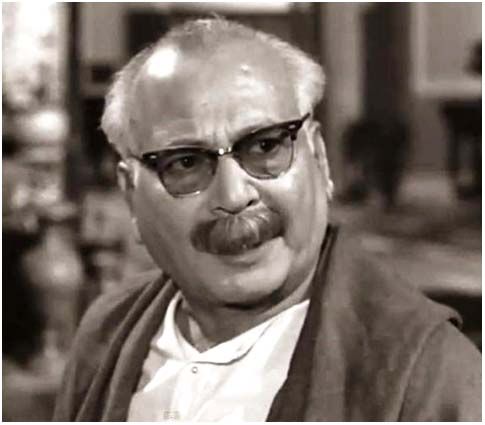

.jpg)




